Carol J. Farran, PhD, RN, MSN, FAAN
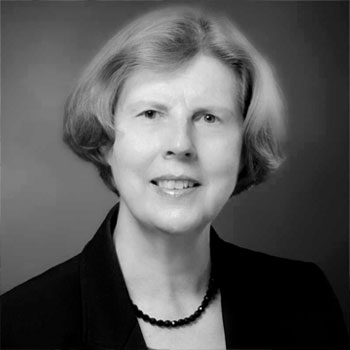
- Professor, Adult Health and Gerontological Nursing, Rush University College of Nursing, Chicago, IL
- Researcher and Principal Investigator at the Rush University Alzheimer’s Disease Center/Rush Institute for Healthy Aging
- Rush University Nurses Alumni Association Endowed Chair in Health and the Aging Process
- Author, Hope and Hopelessness (1995)
- International speaker and presenter
Dr. Farran’s multidisciplinary research has focused on geropsychiatric issues in community and inpatient settings, as well as interventions with older adults and family caregivers of persons with Alzheimer’s disease and related dementias. She has also written on Hope and Hopelessness, 1995, Sage Publications, as well as on “Finding Meaning through Caregiving.” Throughout her research career she has collaborated with co-investigators from the Rush Alzheimer’s Disease Center, Rush Health and Aging, and Rush Institute for Healthy Aging. She has received notable honors for this work from the American Academy of Nursing Raise the Voice Edge Runner; the John A. Hartford Foundation/MNRS Award for Leadership in Geriatric Nursing Research; the NIH for the Plain Language/Clear Communications Gold Award for the booklet on Caring for a Person with Alzheimer’s Disease; and the Rosalynn Carter Leadership in Caregiving Award, as a Co-Recipient with Robyn Golden.
Bill Thomas, MD
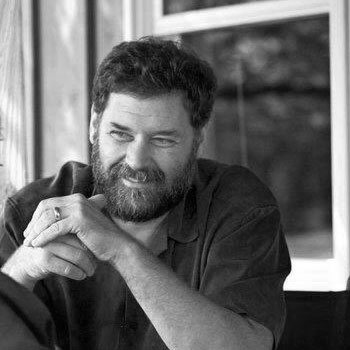
- Physician, Harvard-educated activist geriatrician
- Author and international authority on geriatric medicine and eldercare
- Professor of Aging Studies and Distinguished Fellow at UMBC’s Erickson School, Baltimore, MD
- Co-founder – Eden Alternative; Visionary Spirit – Changing Aging; Founder – Green House Movement
- AARP Visiting Scholar
- “One of America’s top 10 innovators,” The Wall Street Journal
- Websites: www.edenalt.org
changingaging.org
www.thegreenhouseproject.org
Author, entrepreneur, musician, teacher, farmer and physician, Dr. Thomas’s wide-ranging work explores human aging. Named by The Wall Street Journal as one of the top ten Americans shaping aging, Dr. Thomas is internationally known for his health care system innovations. A Harvard graduate, he is the founder of a global non-profit, The Eden Alternative, and creator of The Green House Project, radical new approaches to reform long term care. Dr. Thomas also developed the Senior ER model of care and is now working to transform the acute care services provided to elders. He appeared in the Sundance award-winning documentary Alive Inside. He is creator of a national non-fiction theater roadshow called the Age of Disruption Tour. The tour is inspired by his book, Second Wind: Navigating the Passage to a Slower, Deeper and More Connected Life.
Andrew Weil, MD
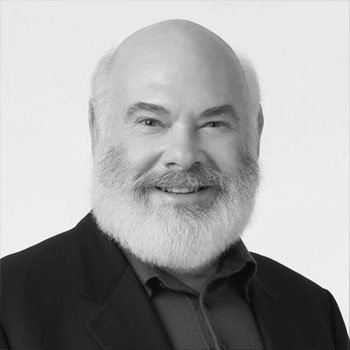
- Physician, speaker, and world-renowned leader and pioneer in the field of Integrative Medicine
- Founder and Program Director, Arizona Center for Integrative Medicine
- Author and prolific writer of a series of best-selling books including Spontaneous Healing (1995), Healthy Aging (2005), Why Our Health Matters (2009), Fast Food, Good Food (2015) and more
- Time Magazine cover in 1997 and 2005
- Popular media figure and on-line guru, “Ask Dr. Weil”
- Website: www.drweil.com
Dr. Weil is a physician, author of many books, and leader of the Integrative Medicine movement. His early medical practice focused on natural and preventive medicine and diagnosis. In his book, Health and Healing: The Philosophy of Integrative Medicine (1983), he defined “integrative medicine” as the practice of alternative medicine with conventional medical practice being used for health crisis intervention. Emphasizing nutrition, exercise and stress reduction to maintain the body’s natural healing systems, he supports the use of conventional medicine for more radical intervention in the event of health crises.
The Arizona Center for Integrative Medicine has trained hundreds of physicians, physician assistants and nurse practitioners in integrative medicine. Integrative medicine programs have now been established at many leading institutions, including the Mayo Clinic, Georgetown, Duke, Columbia University, and Harvard Medical School. He is recognized as an authority for his views on leading a healthy lifestyle, his philosophy of healthy aging, and his critique of the future of medicine and health care.
Harvey Max Chochinov, MD, PhD, FRSC
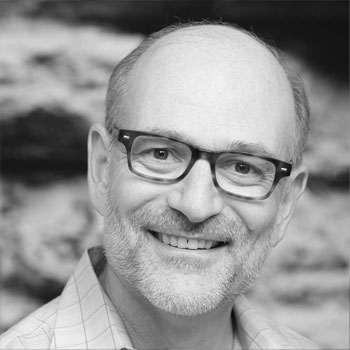
- Distinguished Professor of Psychiatry at the University of Manitoba
- Senior Scientist, Research Institute of Oncology and Hematology, CancerCare Manitoba
- Author, Dignity Therapy: Final Words for Final Days (2012)
- Website: www.dignityincare.ca/en/approach.html
Dr. Harvey Max Chochinov has been doing palliative care research since 1990 with funding support from local, provincial and national granting agencies. His work has explored various psychiatric dimensions of palliative medicine, such as depression, desire for death, will to live and dignity at the end of life. He has been a guest lecturer in most major academic institutions throughout Canada and United States; he has also lectured in South America, New Zealand, Australia, Europe, Cuba, Israel, China, Singapore, Taiwan and Japan. He is the only psychiatrist in Canada to be designated as a Soros Faculty Scholar, Project on Death in America. He is a recipient of the Queen’s Golden Jubilee Medal and his province’s highest honor, the Order of Manitoba, for his work in palliative care. In addition to over 200 publications, he is the Co-Editor of the Handbook of Psychiatry in Palliative Medicine, published by Oxford University Press, and the Journal Palliative and Support Care, published by Cambridge University Press.
Stephanie Mayercik, RN, BSN, MS
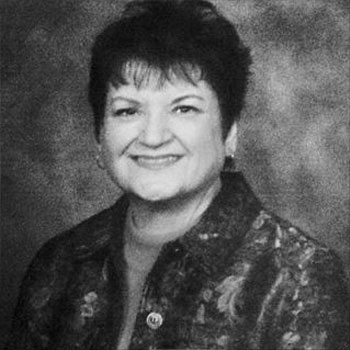
- Executive Director, Harbor Light Hospice
- Nursing Director, Summa Health System; Former Director of Clinical Services, Charter Mental Health Hospital
- Nurse Manager, United States Air Force
- MS, University of Notre Dame; BSN, Creighton University; RN, Akron City Hospital School of Nursing
Stephanie’s most recent employment prior to retirement was serving as Executive Director of a free-standing hospice. Previous employment includes nursing administration positions with multi-hospital systems in Indiana and Ohio. In addition, she has served as primary caregiver for her own aging parents as well as the parents of Michael, her spouse, now deceased.
Peter Whitehouse, MD, PhD (Psychology) and MA (Bioethics)
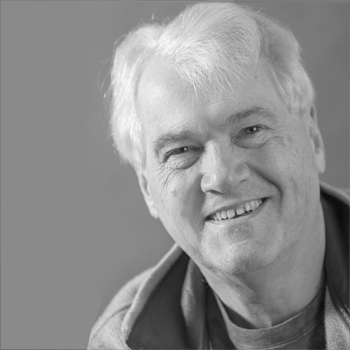
- Internationally-recognized Alzheimer’s expert and thought leader
- Geriatric neurologist, cognitive neuroscientist, and bioethicist
- Author, The Myth of Alzheimer’s: What You Aren’t Being Told About Today’s Most Dreaded Diagnosis (2008)
- Founder, The University Alzheimer Center (now the University Brain Health and Memory Center) at Case Western Reserve University and University Hospitals Case Medical Center
- Founder – with his wife Catherine, The Intergenerational School, Cleveland, OH
- Website: www.themythofalzheimers.com/
Dr. Whitehouse trained at Brown and Johns Hopkins Universities. He is currently a Professor at Case Western Reserve University and University of Toronto and an internationally-known Alzheimer’s expert. A geriatric neurologist, cognitive neuroscientist, and bioethicist, Dr. Whitehouse is the founder of the University Alzheimer Center (now the University Brain Health and Memory Center) at Case Western Reserve University and University Hospitals Case Medical Center. A pioneer in understanding how the brain is affected by what he “used to call Alzheimer’s disease,” his recent work includes ethics, integrative health care, and quality of life. With his wife, Catherine, he co-founded The Intergenerational School in Cleveland. He and co-author, Dr. Daniel George, wrote their book and created the website in order for our community to “re-imagine new approaches to brain aging.”
Daniel George, PhD, MSc
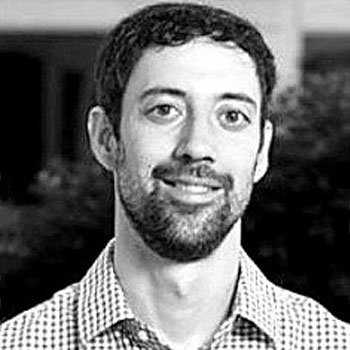
- Associate Professor in Medical Humanities, Penn State University College of Medicine
- Co-author, The Myth of Alzheimer’s: What You Aren’t Being Told About Today’s Most Dreaded Diagnosis (2008)
- Artist and musician – guitar, piano, and ukulele
- Co-founder, The Farmers Market, Hershey, PA
- Website: www.themythofalzheimers.com
- Twitter: @DrDanielGeorge
Dr. George is an Associate Professor in The College of Medicine at The Penn State University. He earned his M.Sc and Ph.D in Medical Anthropology from Oxford University in England. He graduated summa cum laude and phi beta kappa, earning his B.A. in English and Philosophy from The College of Wooster (OH). He is co-author of The Myth of Alzheimer’s: What You Aren’t Being Told About Today’s Most Dreaded Diagnosis. The book has been translated into German, French, Italian, and Japanese. Dr. George is an artist and musician who plays the guitar, piano, and ukulele. He and Dr. Whitehouse have been friends and colleagues since 2004.
Al Power, MD, FACP
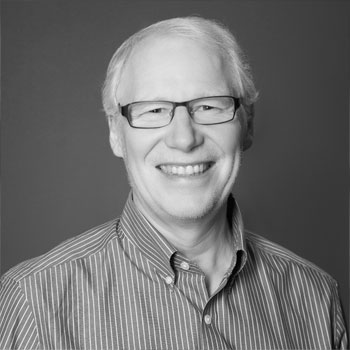
- Schlegel Chair in Aging and Dementia Innovation at the Schlegel-U. Waterloo Research Institute for Aging in Ontario, Canada
- Board-certified internist and geriatrician, Clinical Associate Professor of Medicine at the University of Rochester, New York
- International medical educator and consultant on dementia, culture change and elder care
- Author, Dementia Beyond Drugs: Changing the Culture of Care – Second Edition (2017). “2010 Book of the Year Award” from the American Journal of Nursing and “2011 Merit Award” from National Mature Media
- Author, Dementia Beyond Disease: Enhancing Well-Being – Revised Edition (2017)
- Certified Eden Alternative® Educator; blog contributor to www.changingaging.org
- Board member, Dementia Action Alliance
- Accomplished musician and songwriter with three recordings: His song of elder autonomy, “If You Don’t Mind” – performed by Peter, Paul, and Mary; “I’ll Love You Forever” – used by Walter Cronkite in a 1995 Discovery Channel documentary on American families
- Website: www.alpower.net
As an international educator, Dr. Power is a strong advocate for the restoration of dignity and comfort while helping those living with dementia to flourish. He is the author of two recent books, including Dementia Beyond Drugs: Changing the Culture of Care – Second Edition (2017) and Dementia Beyond Disease: Enhancing Well-Being – Revised Edition (2017). His publications offer humanistic models of care not only for those living with dementia but also for those who care for them. He discusses the shift from institutionalization to “deinstitutionalizing care environments” and asks, “Can we achieve drug-free care?” As educator and activist, he maintains a non-stop international travel schedule, speaking out for changing the culture of dementia care.
Roshi Joan Halifax, PhD
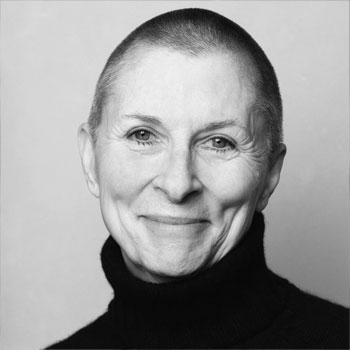
- Buddhist teacher, Zen priest, anthropologist
- Founder, Abbot, Head Teacher of Upaya Institute and Zen Center, a Buddhist monastery in Santa Fe, New Mexico
- Pioneer in end-of-life care
- International teacher and world traveler
- Author, Being with Dying: Cultivating Compassion and Fearlessness in the Presence of Death (2009)
- Website: www.upaya.org
Dr. Halifax is a master teacher, pioneer in end-of-life care, and author of Being with Dying: Cultivating Compassion and Fearlessness in the Presence of Death (2009). She works with dying people and their families and teaches health care professionals and family caregivers the psycho-social, ethical and spiritual aspects of care of the dying. She has lectured on the subject of death and dying at many academic institutions, including Harvard Divinity School and Harvard Medical School, Georgetown Medical School, University of Virginia Medical School, Duke University Medical School, University of Connecticut Medical School, among many others. She has been active in environmental work for many years.
Riane Eisler, JD, PhD (h)
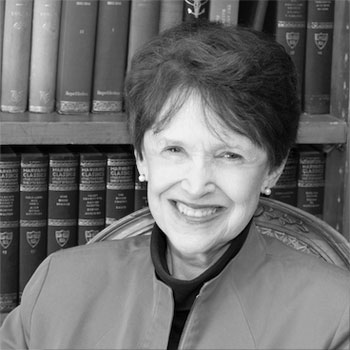
- Attorney working for the human rights of women and children
- Author, Nurturing Our Humanity: How Domination and Partnership Shape Our Brains, Lives, and Future (Coauthor, Doulas Fry, PhD) (2019), The Chalice and the Blade: Our History, Our Future (1987) and The Real Wealth of Nations: Creating a Caring Economics (2007) and more.
- Social scientist and prominent spokesperson
- President, Center for Partnership Studies (CPS)
- Editor in Chief, Interdisciplinary Journal of Partnership Studies
- Recipient, “Great Peacemaker” Award
- Websites: centerforpartnership.org, rianeeisler.com
Riane Eisler’s book, The Chalice and the Blade: Our History, Our Future is considered a classic. In The Real Wealth of Nations, she calls for a more “Caring Economy” which gives “visibility and value to the most essential human work: the work of caring for people and for our natural environment.” Her newest book, Nurturing Our Humanity: How Domination and Partnership Shape Our Brains, Lives, and Future, coauthored with anthropologist, Douglas Fry, PhD, shows how to construct a more equitable, sustainable, and less violent world based on partnership rather than domination. Her pioneering work in human rights has expanded the focus of international organizations to include the rights of women and children. She has been designated as one of 20 “Great Peacemakers,” all being international leaders who have made major contributions to world peace. Among the other 19 are Mahatma Gandhi, Martin Luther King, Jr., Mother Teresa, the Dalai Lama, Jane Goodall, Jacques Cousteau, King Hussein of Jordan, Walter Cronkite, and Archbishop Desmond Tutu.
The Honorable Richard Taylor, PhD
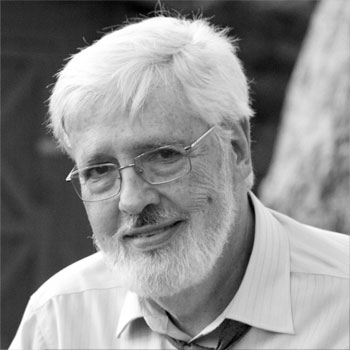
- Psychologist, diagnosed with Alzheimer’s-type dementia in 2001
- Author, Alzheimer’s From the Inside Out
- Co-founder of Dementia Alliance International
- Activist and leader of global change
Richard Taylor, Ph.D., lived for well over a decade with the diagnosis of dementia, probably of the Alzheimer’s type. Speaking and writing about what it is like to live with this condition became the new purpose of his life. He is remembered as an activist dedicated to breaking down the stigmas of dementia and age, while inspiring and encouraging others to “Stand Up and Speak Out.” He was a champion of new empowering ways to relate to people in the various stages of the disease and to elders in our society.
To contribute to the Richard Taylor, PhD, Memorial Fund, please continue here
John Swinton, PhD, BD, RMN, RNMD
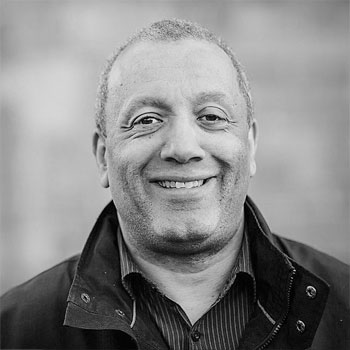
- Author, Dementia – Living in the Memories of God (2012)
- Chair in Divinity and Religious Studies; Professor of Practical Theology and Pastoral Care, University of Aberdeen, Scotland
- Founding Director, Centre for Spirituality, Health, and Disability
- Ordained minister, Church of Scotland; Hospital chaplain and nurse with experience working with the disabled
- Scholar and major figure in development of “disability theology”
- Honorary professor of nursing in the Centre for Advanced Studies in Nursing at Aberdeen University
- Websites: Centre for Spirituality, Health and Disability
Aberdeen University Centre for Ministry Studies
Dr. Swinton is author, noted scholar and pastoral theologian. As Founding Director, Centre for Spirituality, Health, and Disability, he has a background in nursing and mental health chaplaincy. He has researched and published extensively within the area of mental health, spirituality and human well-being and the theology of disability.
Under his leadership, The Centre for Ministry Studies was established in 2014. It is an interdenominational centre seeking to work with all traditions to facilitate education and research for both lay and ordained people.
Kate Swaffer, MSc, BPsych, BA, Retired Nurse
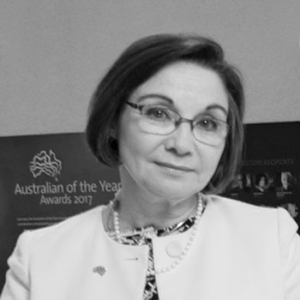
Rights and Disability activist diagnosed with younger onset dementia in 2008
- Author, What the hell happened to my brain? Living beyond dementia (2016) and Diagnosed with Alzheimer’s or Another Dementia (2016), plus two poetry books, and countless journal articles, media appearances and interviews, publications, and blogs.
- Co-founder, Chair, and CEO, Dementia Alliance International (DAI), the global voice of people with dementia
- Australian of the Year in South Australia, 2017
- Australian 100 Women Of Influence, Global Leader, 2018
- Keynote speaker at the World Health Organization and frequent keynote speaker at international conferences
- Leading global campaigner demanding human rights and disability rights for people with dementia and people in aged care
- Academic degrees: MS, Dementia Care (Distinction), 2014; Bachelor of Psychology, 2010; Bachelor of Arts, (Writing and Creative Communication), 2009; Graduate Diploma in Grief Counseling
- The focus of Kate’s uncompleted doctoral work, and other research projects includes Dementia as a Disability, Disability Rights, Human and Legal Rights, Stigma, Quality of Life, the Public Discourse of Dementia and the Power of Language.
- Websites: Creating Life with Words: Inspiration, Love and truth, Dementia Alliance International
Kate Swaffer is a humanitarian and international campaigner for disability and dementia rights, a highly published author and poet, and the Chair, CEO, and a co-founder of Dementia Alliance International. Kate has played a significant role in reframing dementia as a disability and the new narrative of dementia. She advocates for human and legal rights for all people with dementia and older persons, including equal access to the CRPD. She is an elected board member of Alzheimer’s Disease International, a past elected member of the World Dementia Council, and an Ambassador for Step Up For Dementia Research in Australia. Kate is also an Honorary Associate Fellow in the Faculty of Science, Medicine and Health, University of Wollongong, an International Fellow at the England Centre for Practice Development, Canterbury Christ Church University, and a Fellow of the Royal Society for the encouragement of Arts, Manufactures and Commerce (RSA).
Kate is the first person living with a diagnosis of dementia to give an invited keynote speech at an agency of the United Nations, the World Health Organisation (WHO), representing Dementia Alliance International. The presentation was for the WHO First Ministerial Conference on Dementia in March 2015.
She demanded human rights access to the Convention on the Rights of Persons with Disabilities (CRPD) for all people with dementia, and a balance in research between care and cure on the global stage. These demands were included in the WHO Final Call to Action, and human rights were included in the WHO Global Action Plan on the Public Health Response to Dementia 2017-2025, adopted at the World Health Assembly in May 2017.
Kate began her career working as a nurse in dementia and aged care for 25 years, and then operating theatres. She is also a retired chef having run her own hospitality businesses for ten years.
Sources:
Carol Farran Biography – Advance Health Solutions, LLC. (2014). Retrieved September 27, 2014, from
http://www.advancehealthsolutions.com/farran/
Bill Thomas Biography – Premiere Speakers Bureau. (2014). Retrieved September 27, 2014, from
http://premierespeakers.com/dr_bill_thomas/bio
Andrew Weil Biography – Academy of Achievement. (2010). Retrieved September 27, 2014, from
http://www.achievement.org/autodoc/page/wei1bio-1
Harvey Max Chochinov Biography – University of Manitoba Faculty of Medicine. (2014).
Retrieved November 29, 2014, from
http://umanitoba.ca/faculties/medicine/units/psychiatry/research/about_harvey_chochinov.html
Peter Whitehouse Biography – The Myth of Alzheimer’s. (2014). Retrieved September 27, 2014, from
http://www.themythofalzheimrs.com/authors.html
Daniel George Biography – Penn State Profiles. (2014). Retrieved September 27, 2014, from
https://profiles.psu.edu/profiles/display/112944
Allen Power Biography – 2014 G. Allen Power. (2014). Retrieved September 28, 2014, from
http://www.alpower.net/gallenpower_bio.htm
Roshi Joan Halifax Biography – Upaya Zen Center. (2016). Retrieved June 25, 2016, from
https://www.upaya.org/about/roshi/
Riane Eisler Biography – Riane Eisler (2014). Retrieved September 28, 2014, from
www.rianeeisler.com
Richard Taylor Biography (2012). Retrieved November 30, 2014, from his website.
John Swinton Biography – The University of Aberdeen, Scotland. (2018). Retrieved December 27, 2018, from
https://www.abdn.ac.uk/sdhp/profiles/j.swinton
Kate Swaffer https://kateswaffer.files.wordpress.com/2020/07/kate-swaffer_cv_july-2020.pdf
